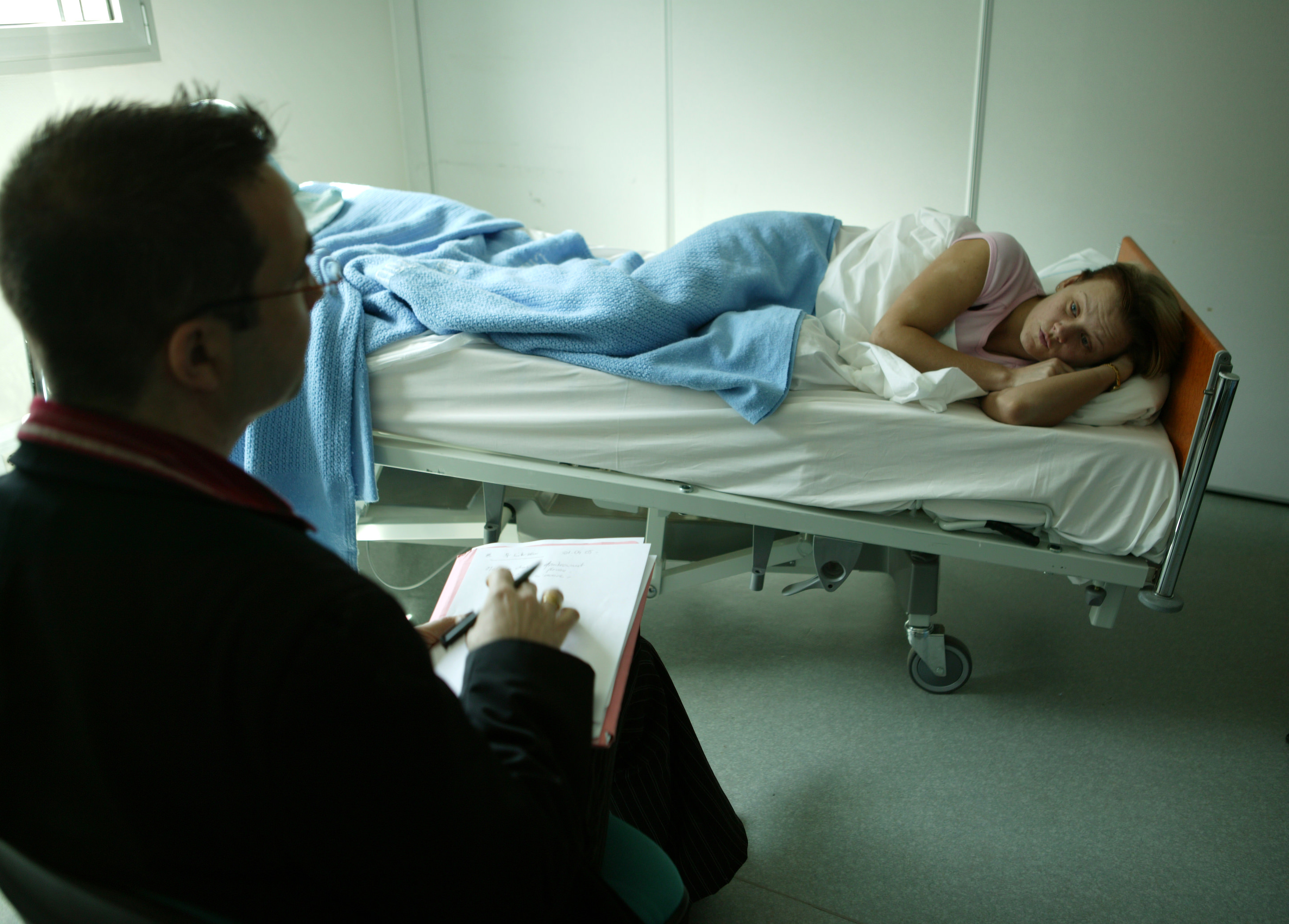Caption: Bedrest volunteer in bed during a study conducted in 2005. Credit: ESA
As you get older, do feel you could do with more rest? Our bodies lose bone density and muscle strength as we age. Astronauts in space suffer similar changes but at a much faster rate. Finding ways to understand and combat this process is important to space agencies, hospital patients and all of us as we grow older. A new study is about to commence at the French Institute for Space Medicine and Physiology, in the clinical research facility in Toulouse, France, that hopes to understand and address changes in astronauts’ bodies in space as well as in bedridden people on Earth. 12 volunteers will spend 21 days in bed. Sound relaxing? Think again.
The volunteers taking part in the study, will lie for 24 hours a day with their heads tilted 6° below the horizontal. They will not be allowed to get up, for any reason. Not for a breath of fresh air, a change of scenery, a shower or to use the toilet, until the 21 days are over. This will cause their bodies to react in similar ways to being weightless, without the expense or risks involved in sending them into space.
In microgravity, bone loss occurs at a rate of 1 to 1.5% a month. This bone demineralization increases the risks of kidney stones and bone fractures as well as altering the ability of bones to heal after fractures. Loss of muscle mass, strength and endurance, increases risk of fatigue and injury. The heart may experience diminished cardiac function and possible disturbances in heart rhythm.
Microgravity also causes body fluids to be redistributed away from the extremities, which results in puffiness in the face during flight. The body’s neurovestibular system that controls balance, stabilizes vision and body orientation in terms of location and direction may also become impaired, leading to disorientation and lack of coordination. The body can also suffer loss of blood volume, low red blood cell levels and immunodeficiency
Although many of the effects are reversible upon return to Earth, astronauts may have problems standing up, stabilizing their gaze, walking and turning, immediately after landing. Some astronauts find their blood pressure drops abnormally low when they move from lying down to a sitting or standing position.
The participants in this latest study will be scientifically scrutinised to see how they adapt to staying in bed for long periods, but they will also be divided into three groups to test a set of measures designed to counteract muscle and bone loss. The control group will be given no countermeasures, while a second group will use resistive and vibrating exercise machines. The last group will use the exercise machines and eat nutritional supplements of whey protein – a common supplement used by bodybuilders to train their muscles.
Each group of volunteers will participate in all the regimes, one after the other, over the course of the entire experiment of more than a year. They will be given four months between each bedrest session to recuperate. After the first 21-day session, they will return to the at the MEDES Space Clinic in Toulouse, for another session and once more in 2013 for a final session. After all that I bet they will need a rest.
Read more about this study here
And read diaries from participants in a similar study that ran for 60 days in 2005 here


Holy smoke, I would not volunteer for this test. I would find it torturous. I had a bad period of immobility last year and I’m finding it very difficult to recover my leg strength (I’m 65). Even a few days in hospital is hard to bear. We need exercise.